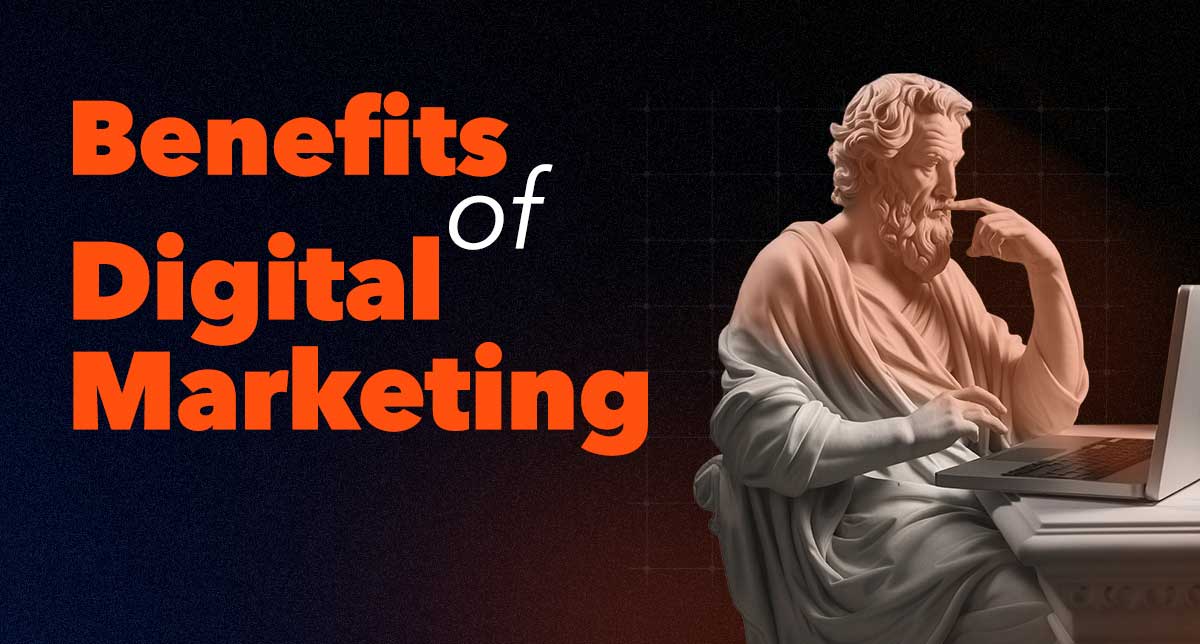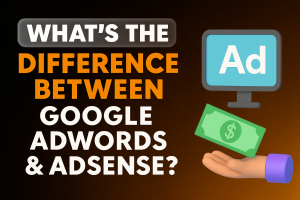Digital marketing has revolutionized how businesses engage with customers and reach their target audience. By leveraging the power of the internet and technology, digital marketing offers companies a vast array of tools and strategies that can drive business growth and brand awareness. From cost-effectiveness to global reach, the benefits of digital marketing make it a cornerstone of modern business strategies. This article explores the key advantages that digital marketing brings to the table and why every business should prioritize it in their marketing plans.
The List of Digital Marketing’s Benefits
Digital marketing offers businesses an array of valuable advantages that drive growth and efficiency. From cost-effective strategies to targeted reach, its benefits are unparalleled in today’s fast-paced market.
Cost-Effectiveness
One of the key reasons businesses turn to digital marketing is its cost-effectiveness. Compared to traditional marketing methods like TV, radio, and print ads, digital marketing offers a more affordable approach with the same or better outcomes. Small businesses with limited marketing budgets can reach their target audience effectively without breaking the bank. For example, platforms like Google Ads and Facebook Ads allow businesses to run campaigns with as little as a few dollars per day. Additionally, digital marketing allows for precise budgeting and flexible scaling of campaigns, meaning businesses can control how much they spend on a daily or monthly basis.
Solution: Businesses can reduce costs by focusing on more affordable channels like social media advertising, email campaigns, and organic search optimization, ultimately achieving better results with less investment.

Targeted Advertising
Digital marketing allows for precise targeting, ensuring that your marketing messages reach the right audience. Unlike traditional advertising, which casts a wide net, digital marketing tools enable you to define your audience based on demographics, location, interests, behavior, and more. For example, social media platforms such as Facebook, Instagram, and LinkedIn allow businesses to target ads to users who fit specific criteria, such as age, location, and interests. This ability to target individuals based on their preferences and online behaviors significantly increases the chances of conversions.
Solution: By utilizing detailed audience segmentation and custom targeting on digital platforms, businesses can optimize their ad spend and ensure that their campaigns reach those who are most likely to engage with their brand.

Measurable Results
One of the standout features of digital marketing is its ability to provide measurable results. Unlike traditional marketing methods, where it’s difficult to determine the effectiveness of campaigns, digital marketing allows businesses to track a range of metrics. Tools like Google Analytics and social media insights give you access to real-time data on your campaigns, such as click-through rates (CTR), conversion rates, and return on investment (ROI). This makes it easy to see what’s working and what’s not, and make adjustments as needed.
Solution: With the ability to track detailed metrics, businesses can continuously refine and optimize their marketing efforts to maximize results. Regular performance analysis ensures campaigns stay on track and continue to improve over time.
Global Reach
One of the most powerful advantages of digital marketing is its global reach. Traditional marketing is often constrained by geographical limits, but digital marketing has no such boundaries. Regardless of where your business is located, you can reach a global audience with minimal effort and cost. Whether you’re targeting a local market or an international one, digital marketing tools allow you to reach customers across the globe. From social media campaigns to search engine optimization (SEO), your business can gain visibility and grow your audience worldwide.
Solution: To maximize global reach, businesses should implement strategies that cater to international markets, such as using localized content and running region-specific ads. This ensures that businesses can capture the attention of potential customers no matter where they are located.
Enhanced Customer Engagement
Digital marketing fosters a deeper level of engagement between businesses and customers. Through platforms like social media, businesses can interact directly with their audience, responding to comments, addressing concerns, and building relationships. These interactions help create a sense of community around your brand, increasing customer loyalty and trust. Whether it's through engaging social media posts, email newsletters, or live chats, digital marketing allows businesses to communicate with customers in real time and at a personal level.
Solution: To enhance customer engagement, businesses can use interactive content such as polls, quizzes, and surveys to spark conversations with their audience. Offering personalized communication through automated email campaigns and chatbots also helps build stronger relationships.

Flexibility and Adaptability
Digital marketing offers a level of flexibility that traditional marketing methods cannot match. With digital campaigns, businesses can quickly adapt to changes in the market or audience preferences. For instance, if an ad isn’t performing well, it can be paused or adjusted within hours to optimize performance. This flexibility is essential in today’s fast-paced digital world, where trends and consumer behaviors change rapidly. In addition, digital marketing campaigns can be tested and refined using techniques like A/B testing to see which strategies yield the best results.
Solution: By regularly analyzing campaign performance and making real-time adjustments, businesses can ensure their digital marketing efforts stay aligned with their goals and provide maximum ROI.
read more, what is digital marketing?Conclusion:
In conclusion, the benefits of digital marketing are undeniable. From its cost-effectiveness to its global reach and the ability to measure results, digital marketing provides businesses with the tools they need to thrive in today’s digital world. By implementing targeted advertising, enhancing customer engagement, and utilizing flexible strategies, companies can gain a competitive edge and drive long-term growth. Digital marketing is no longer optional it is an essential part of any successful business strategy.
At HDM (High Definition Marketing), we understand the power of digital marketing and help businesses navigate this ever-changing landscape. Our expertise in SEO, social media marketing, and PPC advertising enables us to craft customized strategies that drive measurable results. Whether you’re a small business or a large enterprise, our team is dedicated to delivering personalized, measurable, and impactful results.

FAQ
What are the most effective types of digital marketing? Some of the most effective types of digital marketing include social media marketing, search engine optimization (SEO), pay-per-click (PPC) advertising, email marketing, and content marketing. The most suitable type depends on your business goals and target audience. How do I measure the success of my digital marketing campaigns? Success can be measured through various metrics such as website traffic, conversion rates, return on investment (ROI), customer acquisition cost, and engagement rates on social media. Analytics tools like Google Analytics can help track these metrics. Is digital marketing suitable for small businesses? Yes, digital marketing is highly suitable for small businesses. It offers them a level playing field with larger businesses, as it provides cost-effective solutions and precise targeting to reach specific customers.Can I run a digital marketing campaign with a small budget?
Absolutely! Digital marketing is one of the most budget-friendly marketing methods available. Platforms like Facebook, Google Ads, and Instagram allow businesses to run campaigns with any budget, and you can always scale up as needed. How do I start with digital marketing for my business? Start by identifying your target audience and business goals. From there, choose the appropriate digital marketing strategies (SEO, PPC, social media) and begin creating content, ads, and campaigns. Don’t forget to measure your performance regularly and adjust your strategies as needed.



